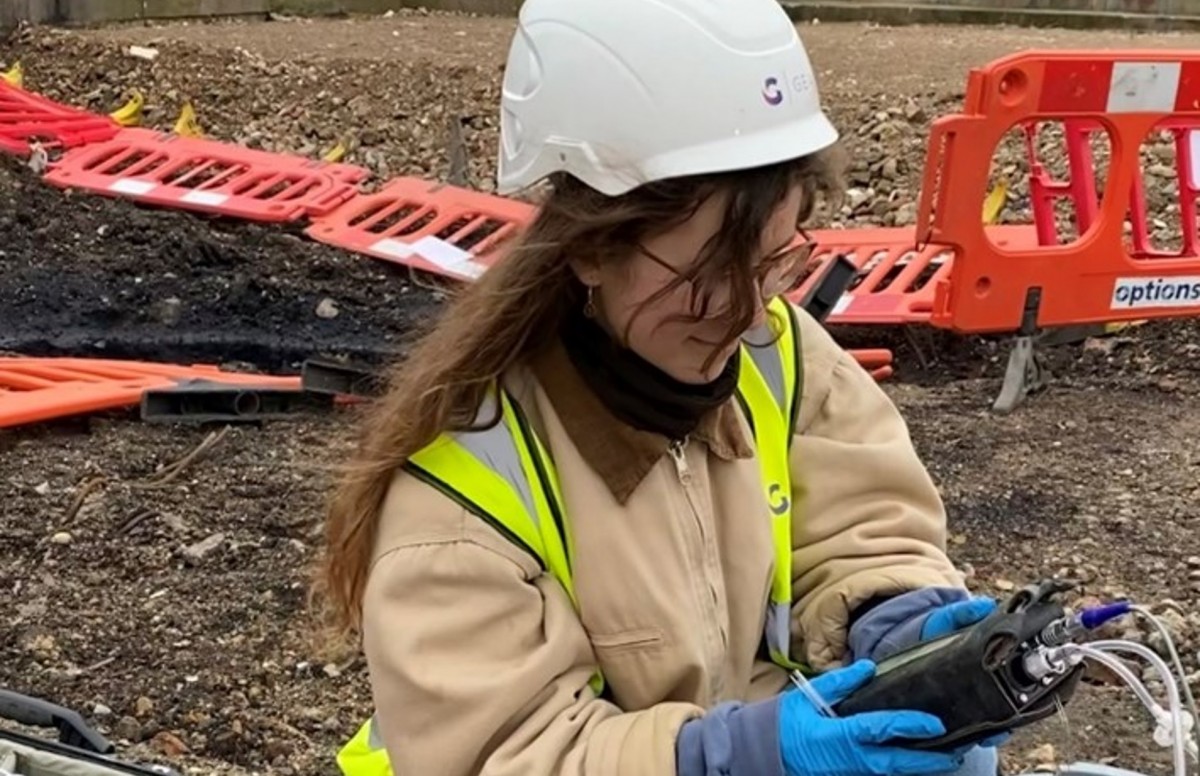The Geotheta Statements
The Geotheta Statements
Blog Article
Some Ideas on Geotheta You Should Know
Table of ContentsHow Geotheta can Save You Time, Stress, and Money.How Geotheta can Save You Time, Stress, and Money.Some Known Questions About Geotheta.3 Simple Techniques For GeothetaThe Facts About Geotheta Revealed

They perform website examinations, collect samples, do research laboratory tests, and evaluate data to assess the suitability of the ground for construction tasks - Geo Tech Engineer. Based upon their findings, geotechnical engineers provide recommendations for structure layout, incline security, retaining structures, and mitigation of geotechnical risks. They team up with other professionals, such as architects, structural designers, and construction teams, to ensure that geotechnical considerations are integrated into the total project design and application
By examining the actions and homes of soil and rock, they can determine possible geotechnical dangers such as landslides, dirt settlement, or incline instability. Their experience aids avoid failures or mishaps that could jeopardize lives and residential property. Right here are some comprehensive responsibilities and responsibilities of a geotechnical engineer: Website Examination: Geotechnical engineers conduct website investigations to gather information on subsurface problems.
They interpret the data to understand the residential properties and behavior of the soil and rock, including their strength, leaks in the structure, compaction features, and groundwater problems. Geotechnical Evaluation and Layout: Geotechnical engineers examine the data collected throughout website examinations to examine the security and viability of the site for building projects. They do geotechnical calculations and modeling to evaluate variables such as birthing capability, settlement, incline stability, side earth pressures, and groundwater circulation.
About Geotheta
Structure Style: Geotechnical engineers play a vital role in making structures that can safely sustain the intended framework. They evaluate the dirt problems and load needs to establish the proper structure type, such as superficial structures (e.g., grounds), deep foundations (e.g (https://justpaste.it/ec966)., stacks), or specialized strategies like dirt renovation. They think about aspects such as negotiation limitations, birthing ability, and soil-structure interaction to develop ideal foundation designs
They review construction strategies, screen site activities, and carry out field inspections to validate that the style recommendations are complied with. If unpredicted geotechnical problems arise, they examine the situation and give suggestions for removal or adjustments to the layout. Danger Analysis and Mitigation: Geotechnical engineers assess geotechnical threats and dangers linked with the job website, such as landslides, liquefaction, or soil erosion.

Collaboration and Communication: Geotechnical engineers function closely with various other professionals involved in a task, such as designers, architectural engineers, and construction groups. Effective interaction and partnership are important to integrate geotechnical considerations into the overall job layout and building and construction procedure. Geotechnical engineers give technical knowledge, response questions, and guarantee that geotechnical requirements are met.
Geotheta Things To Know Before You Get This
Below are some sorts of geotechnical designers: Structure Engineer: Structure engineers concentrate on designing and evaluating foundations for structures. They examine the soil problems, tons demands, and site attributes to establish one of the most ideal structure kind and layout, such as superficial structures, deep structures, or specialized methods like stack foundations.
They assess the elements influencing incline security, such as dirt residential or commercial properties, groundwater conditions, and slope geometry, and develop techniques to stop slope failures and alleviate threats. Quake Designer: Quake designers concentrate on analyzing and designing structures to endure seismic forces. They assess the seismic risk of a website, assess soil liquefaction possibility, and establish seismic style requirements to ensure the safety and strength of structures during quakes.
They carry out field screening, gather samples, and assess the accumulated data to characterize the dirt homes, geologic formations, and groundwater problems at a site. Geotechnical Instrumentation Designer: Geotechnical instrumentation designers concentrate on tracking and measuring the habits of soil, rock, and frameworks. They install and keep instrumentation systems that keep an eye on factors such as dirt settlement, groundwater degrees, slope movements, and architectural displacements to analyze performance and give early cautions of prospective concerns.
The Only Guide for Geotheta
They conduct tests such as triaxial tests, combination examinations, straight shear examinations, and permeability examinations to gather information for geotechnical evaluation and design. Geosynthetics Designer: Geosynthetics engineers focus on the layout and application of geosynthetic products, such as geotextiles, geogrids, and geomembranes. They use these materials to boost dirt stability, strengthen inclines, give drainage services, and control disintegration.
They often tend to be investigatory individuals, which implies they're intellectual, reflective, and inquisitive. They are interested, systematic, reasonable, analytical, and logical. A few of them are additionally social, meaning they're kind, generous, cooperative, client, caring, his explanation useful, empathetic, skillful, and friendly. Does this seem like you? Take our free occupation test to figure out if geotechnical designer is just one of your top profession suits.
In the workplace environment, geotechnical designers use specialized software application devices to perform computations, produce designs, and analyze information. They prepare records, evaluation task specifications, interact with customers and staff member, and coordinate task tasks. The office setup supplies a favorable environment for study, analysis, and collaboration with various other experts associated with the task.
Geotheta Can Be Fun For Everyone
They frequently see job websites to conduct website investigations, assess geotechnical problems, and collect data for evaluation. These sees involve traveling to various areas, in some cases in remote or tough surfaces. Geotechnical engineers may execute soil sampling, conduct examinations, and monitor building and construction tasks to make certain that the geotechnical aspects of the job are being executed properly.
Geotechnical designers additionally function in specialized geotechnical research laboratories. In these facilities, they conduct experiments, do examinations on dirt and rock samples, and assess the design properties of the materials. Geotechnical lab designers function extensively in these environments, managing testing tools, running tools, and recording data. They work together with other lab team to ensure exact and dependable testing outcomes.
Report this page